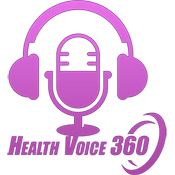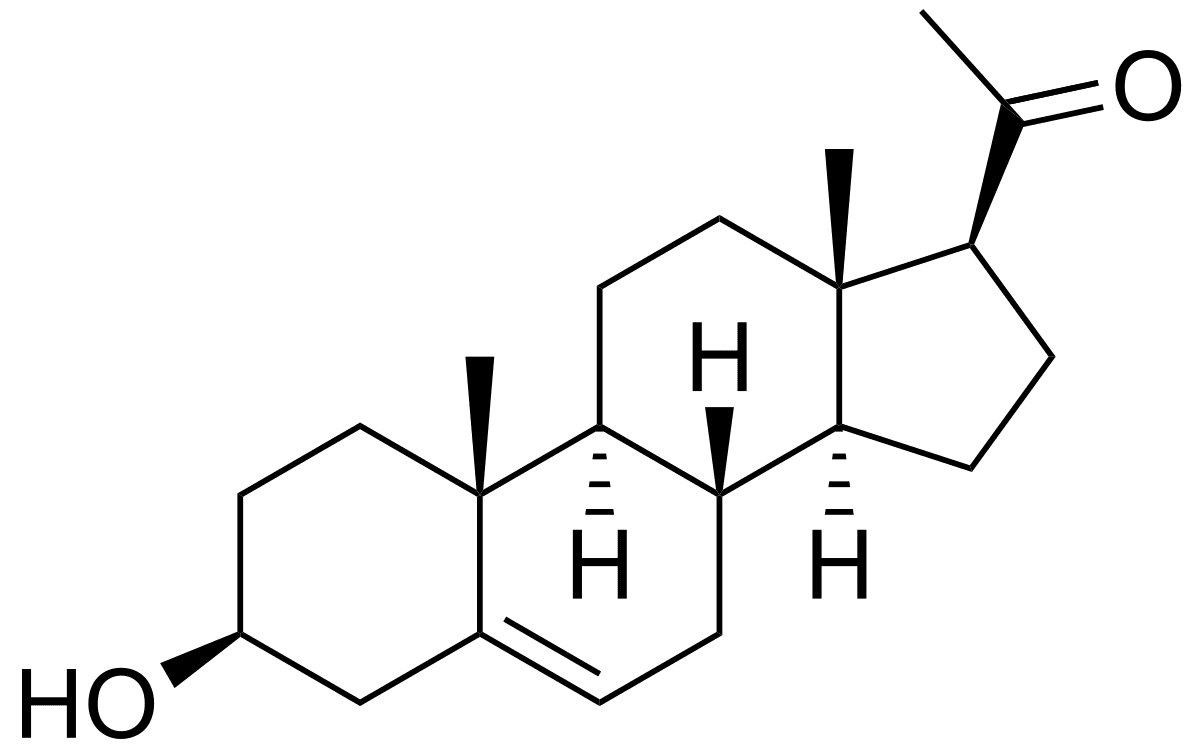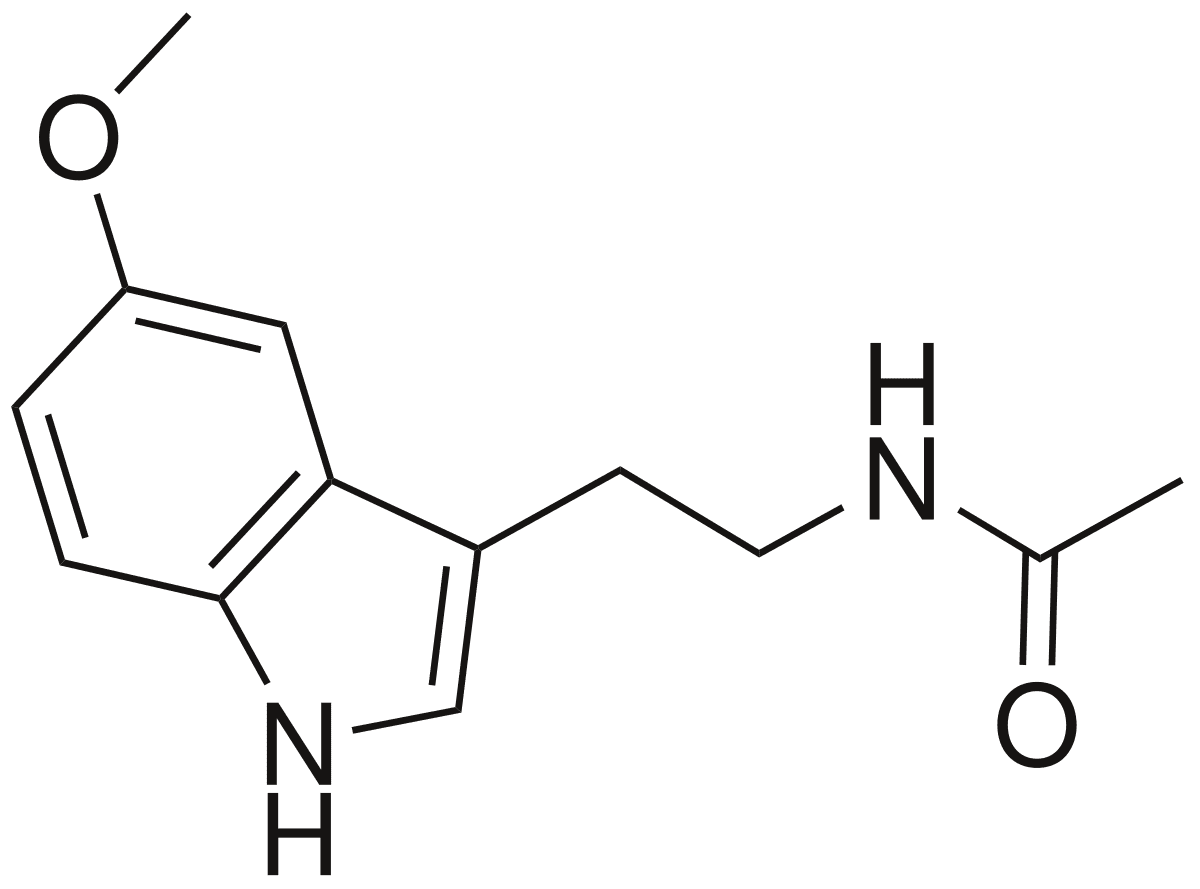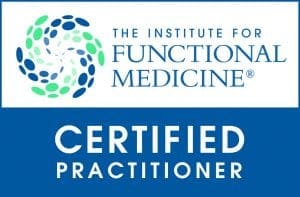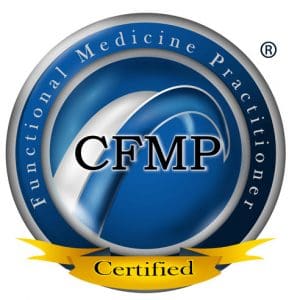Table of Contents
Introduction
When the body is in motion, a person can do many things like exercising or just enjoying the day out. This is due to the hormones that are doing their job and making sure that each system is doing what they are supposed to do. Hormones are made in the endocrine system and are secreted out through the adrenal glands. when there are unwanted pathogens are inside the body and causing the hormone levels to overproduce it can cause the body to go haywire. In this three-part series, we will be discussing about the hormone pregnenolone and its functions as well as seeing how melatonin can affect the body’s hormones. Part 1 discusses what happens when the female body when it goes through menopause and how estrogen and progesterone are utilized in the body, and what function do they provide to the female body. In Part 2, we discussed about the symptoms of DHEA dysfunction and the relationship between female hormones and insulin. Over the last decade, many of our patients have asked complex and insightful questions about hormone replacement therapies. By referring patients to qualified and skilled providers who specialized in hormone wellness services and we advise our patients to appropriately refer to our associated medical providers based on their examination. We find that education is the key when asking valuable questions to our providers. Dr. Jimenez DC provides this information as an educational service only. Disclaimer
Can my insurance cover it? Yes, here is the link to the list of all the insurance providers we cover in case you are uncertain. If you have any questions, please call Dr. Jimenez at 915-850-0900.
What is Hormone Replacement Therapy?
Hormone replacement therapy or HRT actually can help supplement menopausal women replenish their hormone levels. Menopause is when a woman starts to lose their hormone levels naturally and it can range from 35 years of age through 55 years of age. So with hormonal replacement therapy, it can help the body replenish the lost hormones and can provide beneficial results. For the female body, HRT can help regulate and repair hormonal growth in females.
The Hormone Pregnenolone
The hormone pregnenolone is the precursor to DHEA, estrogen, progesterone, and testosterone. It is found naturally in the body and is made from the body’s cholesterol. However, if a person has very low cholesterol that is below 140, their body cannot produce pregnenolone effectively but can take supplements that do contain pregnenolone to replenish the low levels. Sadly like all hormones, it does naturally decline due to age, and when individuals are at the age of 75, their pregnenolone hormone levels decline to 65%.
The Functions Of Pregnenolone
There are many functions that pregnenolone can offer to the body. It can help regulate the balance between excitation and inhibition in the nervous system and can increase the resistance to stress. If a person is feeling a bit low on energy, pregnenolone can help give the body a bit of boost energy both physically and mentally. Pregnenolone can even help block the production of acid-forming compounds that are inhibiting the body. Other beneficial function that pregnenolone can provide includes:
- Modulates the neurotransmitter GABA
- Helps to repair nerve damage
- Promotes mood elevation
- Improves sleep
- Enhances acetylcholine transmission
- Modulates NMDA receptors
- Regulates pain control, learning, memory, and alertness
- Is anti-inflammatory
The Symptoms Of Pregnenolone Deficiency
When the body doesn’t produce enough pregnenolone it can cause the body to go haywire. When that happens, this is known as pregnenolone deficiency. Some of the causes of low levels of pregnenolone can include:
- Eating too many saturated fats and trans-fats
- Very low cholesterol levels
- Hypothyroidism
- Pituitary tumor
- Having a severe illness
- Pregnenolone will make more cortisol and less of the other hormones to help the body deal with stress.
When these causes are affecting the body and the individual has pregnenolone deficiency it can cause the individual’s body to be dysfunctional and can cause harm if it is not taken care of. Some of the symptoms of pregnenolone deficiency include:
- Arthritis
- Depression
- Fatigue
- Inability to deal with stress
- Insomnia
- Lack of focus
- Memory decline
How Pregnenolone Is Used In Treatments?
Since pregnenolone is the precursor to estrogen and all the other female hormones, it is amazing that it is a potential candidate for antiproliferative hormones to ovarian cancer and other female reproductive diseases. Since pregnenolone is anti-inflammatory it can help dampen the causes of inflammatory diseases that can harm the body. Some of the treatments that pregnenolone can provide are:
- Arthritis
- Depression including bipolar depression
- Memory loss
- Fatigue
- Moodiness
- Improves delta-wave sleep
- Prevention of memory loss
- Endometriosis
- Seizure disorders
- Autoimmune diseases
Melatonin
If there is one thing that can help a person feel at ease and make their bodies relax, it is melatonin. It is the one hormone that plays a huge role when it comes to sleep and it is produced by the pineal gland at night. Surprisingly though, it is made from tryptophan which is also used to make serotonin, and if the melatonin production goes up inside the body, the production of serotonin goes down. This can also go in reverse if a person is eating too many high glycemic index carbohydrates, melatonin production goes down and the production of serotonin goes up. And if a person is taking B vitamins, the body can convert those B vitamins to melatonin from tryptophan.
The Many Functions Of Melatonin
Even though melatonin is used for a better night’s sleep, there are many other beneficial properties that melatonin can provide to the body. Melatonin can actually affect the release of sex hormones in the body and can help block the estrogen hormone from binding to receptor sites in the body. Melatonin can even help with decreasing cortisol levels by making the body relax and release all the tension that the individual was harboring. Other beneficial properties that melatonin can offer are:
- Aids the immune system
- Acts as an antioxidant
- Helps balance the stress response
- Helps prevent cancer
- Improves mood
- Increases the action of benzodiazepines
- Stimulates the parathyroid gland
- Stimulates the production of growth hormone
- Cardio-protection
- Protects against GERD
Melatonin & Cardioprotection
Since melatonin is produced by the pineal gland, the biological effect of combating oxidative stress is remarkable. Studies have shown that melatonin can regulate the immune and inflammatory responses in the body, enhance mitochondrial function, and plays a critical role in protecting cardiomyocytes from infarction. Melatonin has been shown to reduce hypoxia and prevent reoxygenation-induced damage
in patients with cardiac ischemia and ischemic stroke.
Melatonin & Insulin
Melatonin is necessary for the proper synthesis, secretion, and action of insulin and acts by regulating GLUT4 expression and/or triggering, via its G?protein?coupled membrane receptors, the phosphorylation of the insulin receptor and its intracellular substrates mobilizing the insulin?
signaling pathway. Melatonin is a powerful chronobiotic meaning that it helps regulate the body’s internal clock.
Furthermore, melatonin is responsible for the establishment of an adequate energy balance by
regulating energy flow to and from the stores and directly regulating the energy expenditure through the
activation of brown adipose tissue and participating in the browning process of white adipose tissue. The reduction in melatonin production, with aging, shift?work, or illuminated environments during the
night, induces insulin resistance, glucose intolerance, sleep disturbance, and metabolic circadian changes which leads to weight gain.
Melatonin & Alzheimer’s Disease
Some symptoms of decreased melatonin are also common to patients with Alzheimer’s
disease. This can include:
- Disruption of circadian rhythm
- Mood changes
- Delirium
One medical trial showed that melatonin levels in the CSF in patients over the age of
80 were ½ the level of younger/healthier patients and patients in this study with Alzheimer’s,
the disease had even lower levels which were 1/5 of those in young healthy people. Melatonin has even shown patients beneficial properties when diagnosed with early Alzheimer’s disease.
Melatonin & Parkinson’s Disease
Melatonin replacement has been shown to decrease the risk of developing Parkinson’s disease. Animal trials have shown that melatonin can prevent and to some extent may even help reverse the motor and behavior changes that are associated with Parkinson’s disease. In Parkinson’s disease, there is an
accumulation of a protein called alpha-synuclein. Surprisingly melatonin supplementation can help prevent the production of alpha-synuclein in the brain cells and attacks them so that way it can be more available to be removed from the body.
Conclusion
All in all, hormones play the most functional and important role in the body. If there are unwanted pathogens that are affecting the body and causing the hormone levels to rise, it can cause the body to go haywire and be prone to chronic illnesses. So it is important that the hormone levels are normal and functional for people to live a healthy life.
References
Staff, Mayo Clinic. “Endometriosis.” Mayo Clinic, Mayo Foundation for Medical Education and Research, 24 July 2018, https://www.mayoclinic.org/diseases-conditions/endometriosis/symptoms-causes/syc-20354656.
Allen, Mary J, et al. “GABA Receptor.” StatPearls [Internet]., U.S. National Library of Medicine, 17 Feb. 2021, https://www.ncbi.nlm.nih.gov/books/NBK526124/.
Fu, Zhenhong, et al. “Cardioprotective Role of Melatonin in Acute Myocardial Infarction.” Frontiers in Physiology, Frontiers Media S.A., 29 Apr. 2020, https://www.ncbi.nlm.nih.gov/pmc/articles/PMC7201093/.
Harper-Harrison, Gina, and Meaghan M Shanahan. “Hormone Replacement Therapy.” StatPearls [Internet]., U.S. National Library of Medicine, 3 June 2021, https://www.ncbi.nlm.nih.gov/books/NBK493191/.
Murugan, Subathra, et al. “The Neurosteroid Pregnenolone Promotes Degradation of Key Proteins in the Innate Immune Signaling to Suppress Inflammation.” The Journal of Biological Chemistry, American Society for Biochemistry and Molecular Biology, 22 Mar. 2019, https://www.ncbi.nlm.nih.gov/pmc/articles/PMC6433066/.
Scientists, NIA. “What Is Menopause?” National Institute on Aging, U.S. Department of Health and Human Services, 30 Sept. 2021, https://www.nia.nih.gov/health/what-menopause.
Shin, Ye Young, et al. “Pregnenolone as a Potential Candidate for Hormone Therapy for Female Reproductive Disorders Targeting ER?.” Molecular Reproduction and Development, U.S. National Library of Medicine, Jan. 2019, https://pubmed.ncbi.nlm.nih.gov/30411422/.
Staff, Mayo Clinic. “Parkinson’s Disease.” Mayo Clinic, Mayo Foundation for Medical Education and Research, 8 Dec. 2020, https://www.mayoclinic.org/diseases-conditions/parkinsons-disease/symptoms-causes/syc-20376055.
Wong, Cathy. “How Taking Pregnenolone Might Boost Brain Health.” Verywell Mind, Verywell Mind, 3 Feb. 2020, https://www.verywellmind.com/the-lowdown-on-pregnenolone-89502.
Disclaimer
General Disclaimer
Professional Scope of Practice *
The information herein on "The Latest Guidelines For Women's Hormones | Part 3" is not intended to replace a one-on-one relationship with a qualified health care professional or licensed physician and is not medical advice. We encourage you to make healthcare decisions based on your research and partnership with a qualified healthcare professional.
Blog Information & Scope Discussions
Welcome to El Paso's Premier Wellness and Injury Care Clinic & Wellness Blog, where Dr. Alex Jimenez, DC, FNP-C, a Multi-State board-certified Family Practice Nurse Practitioner (FNP-BC) and Chiropractor (DC), presents insights on how our multidisciplinary team is dedicated to holistic healing and personalized care. Our practice aligns with evidence-based treatment protocols inspired by integrative medicine principles, similar to those found on this site and our family practice-based chiromed.com site, focusing on restoring health naturally for patients of all ages.
Our areas of multidisciplinary practice include Wellness & Nutrition, Chronic Pain, Personal Injury, Auto Accident Care, Work Injuries, Back Injury, Low Back Pain, Neck Pain, Migraine Headaches, Sports Injuries, Severe Sciatica, Scoliosis, Complex Herniated Discs, Fibromyalgia, Chronic Pain, Complex Injuries, Stress Management, Functional Medicine Treatments, and in-scope care protocols.
Our information scope is multidisciplinary, focusing on musculoskeletal and physical medicine, wellness, contributing etiological viscerosomatic disturbances within clinical presentations, associated somato-visceral reflex clinical dynamics, subluxation complexes, sensitive health issues, and functional medicine articles, topics, and discussions.
We provide and present clinical collaboration with specialists from various disciplines. Each specialist is governed by their professional scope of practice and their jurisdiction of licensure. We use functional health & wellness protocols to treat and support care for musculoskeletal injuries or disorders.
Our videos, posts, topics, and insights address clinical matters and issues that are directly or indirectly related to our clinical scope of practice.
Our office has made a reasonable effort to provide supportive citations and has identified relevant research studies that support our posts. We provide copies of supporting research studies upon request to regulatory boards and the public.
We understand that we cover matters that require an additional explanation of how they may assist in a particular care plan or treatment protocol; therefore, to discuss the subject matter above further, please feel free to ask Dr. Alex Jimenez, DC, APRN, FNP-BC, or contact us at 915-850-0900.
We are here to help you and your family.
Blessings
Dr. Alex Jimenez DC, MSACP, APRN, FNP-BC*, CCST, IFMCP, CFMP, ATN
email: coach@elpasofunctionalmedicine.com
Multidisciplinary Licensing & Board Certifications:
Licensed as a Doctor of Chiropractic (DC) in Texas & New Mexico*
Texas DC License #: TX5807, Verified: TX5807
New Mexico DC License #: NM-DC2182, Verified: NM-DC2182
Multi-State Advanced Practice Registered Nurse (APRN*) in Texas & Multistate
Multistate Compact RN License by Endorsement (42 States)
Texas APRN License #: 1191402, Verified: 1191402 *
Florida APRN License #: 11043890, Verified: APRN11043890 *
* Prescriptive Authority Authorized
ANCC FNP-BC: Board Certified Nurse Practitioner*
Compact Status: Multi-State License: Authorized to Practice in 40 States*
Graduate with Honors: ICHS: MSN-FNP (Family Nurse Practitioner Program)
Degree Granted. Master's in Family Practice MSN Diploma (Cum Laude)
Dr. Alex Jimenez, DC, APRN, FNP-BC*, CFMP, IFMCP, ATN, CCST
My Digital Business Card
RN: Registered Nurse
APRNP: Advanced Practice Registered Nurse
FNP: Family Practice Specialization
DC: Doctor of Chiropractic
CFMP: Certified Functional Medicine Provider
MSN-FNP: Master of Science in Family Practice Medicine
MSACP: Master of Science in Advanced Clinical Practice
IFMCP: Institute of Functional Medicine
CCST: Certified Chiropractic Spinal Trauma
ATN: Advanced Translational Neutrogenomics
